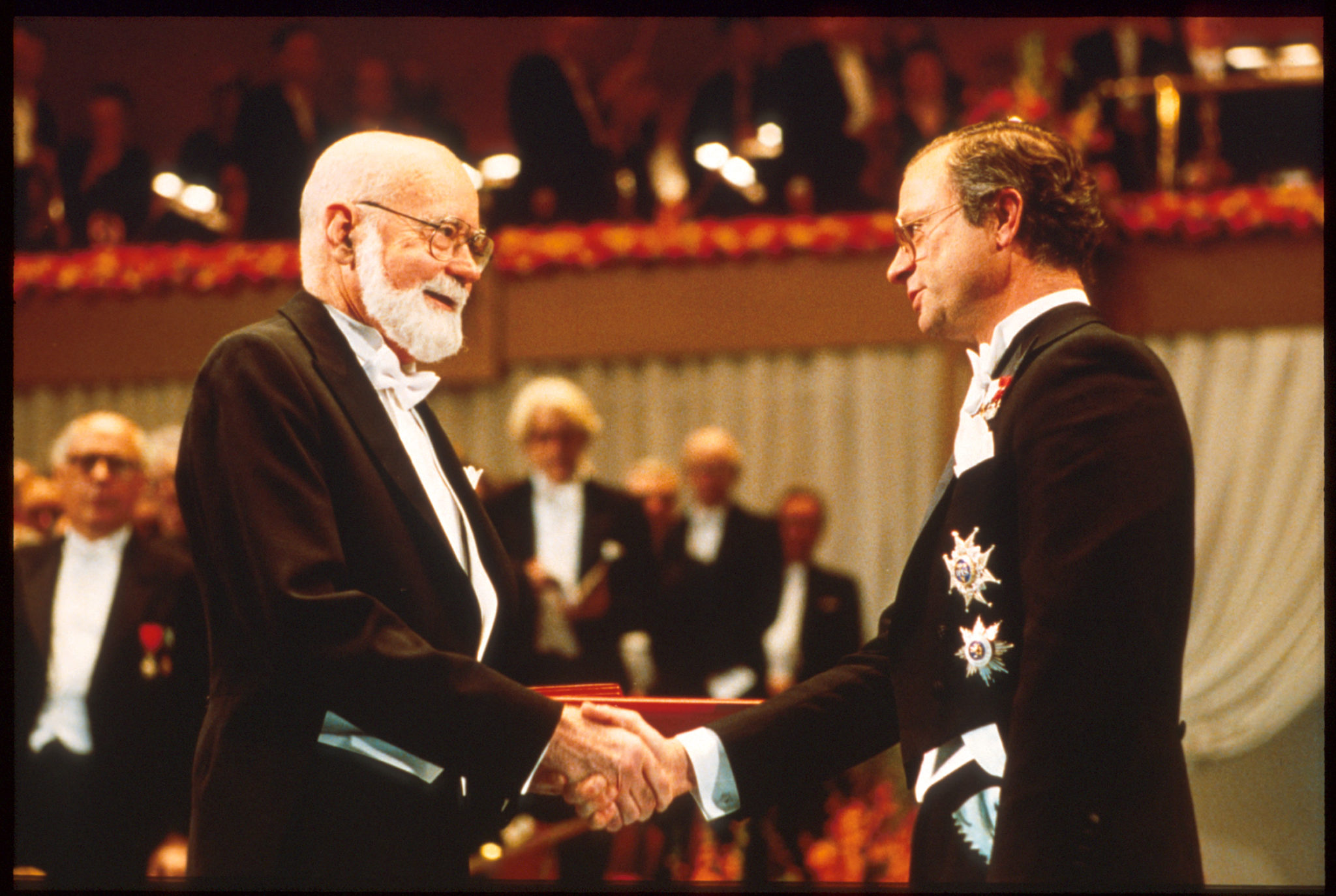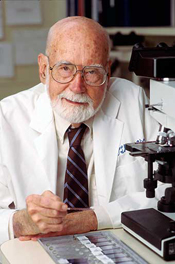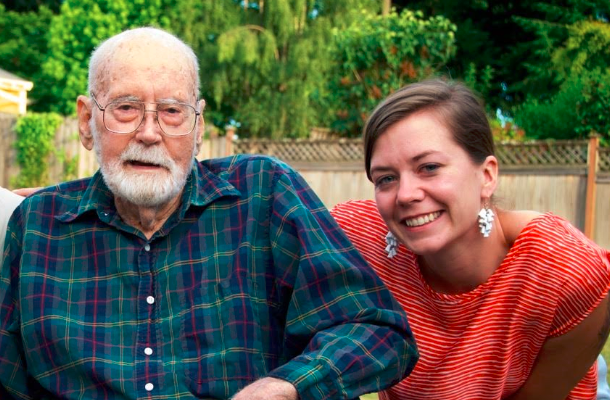
Innovating in the Face of Doubt: A Lesson from a Nobel Laureate
by Genevieve Thomas, Vice President of Integrated Special Education
I still have a clear memory of the morning – it was 1990, and I was in the third grade. My mom woke me up earlier than usual to tell me that my grandfather had won the Nobel Prize in medicine. “Nobel Prize” hadn’t yet made it in to my eight-year-old vocabulary, so my mom tried to explain. While I recall being impressed by a prize that only a few people “in the whole world” won each year, I still didn’t comprehend the magnitude of what my grandfather had accomplished. Over the years, through reading articles and watching news stories about my grandfather, talking with colleagues who worked in his lab with him, and many long conversations with the man himself, I came to truly understand the impact that his work has had on the world.

E. Donnall Thomas, M.D. won the 1990 Nobel Prize in physiology & medicine for his pioneering work in bone-marrow transplantation to cure leukemias and other blood cancers.
My grandfather had a humble beginning in depression-era, rural Texas, the son of a small town horse-and-buggy doctor. He attended Harvard Medical School during the 1940s and, during that time, became interested in leukemia and bone marrow and conducted early research in bone marrow transplantation. In 1963, he moved to Seattle where he and his team sought to do what others were convinced would never work: cure leukemia through bone marrow transplantation.
In the early days of his research, the vast majority of the medical community thought that human bone marrow transplantation was impossible – as my father put it in a recent conversation about my grandfather, at the time it was as crazy an idea as putting a man on the moon. In this environment, it took incredible conviction, determination, and a steadfast belief in his mission for my grandfather to persevere. Today, successful bone marrow transplantation is considered among the world’s most significant medical advances and tens of thousands of leukemia patients are now living productive lives as the result of transplantation.
I often reflect on the incredible resolve it took for my grandfather and his team to persist in their attempts to innovate in such a high stakes environment, and in the face of so much doubt. In these reflections, I consider the parallels between their work and the work that Rocketship is doing to innovate in the way we educate students with disabilities in our schools. There are plenty of folks out there in the education community who say that meaningful inclusion of students with disabilities, especially those with more significant disabilities, can’t be achieved; that students with a certain label can only successfully be educated in a special class for students with that designation. They say that classroom teachers can’t be trusted to work with students with disabilities; that special education teachers can’t support students in accessing grade level content. Our model has, however, time and again proven the naysayers wrong through the incredible success that so many students with disabilities have experienced in our schools.
Our steadfast commitment to providing all students access to a rigorous educational program in the general education environment, to genuinely educate all of our students with disabilities in the least restrictive environment, truly is innovative.

Genevieve Thomas with her grandfather.
In a 2006 interview, my grandfather chalked his success up to two attributes: his stubbornness, and his ability to attract brilliant colleagues to work with him. Rocketship shares these attributes in our approach to educating all students. We stubbornly promise the families of our Rocketeers that we will commit to evidence-based practice with a focus on meaningful inclusion, even when it would frankly be easier to isolate some of our most challenging students in a “special class.” We stubbornly commit to holding high expectations for all of our students, including our students with disabilities. And we stubbornly insist on surrounding ourselves with the brilliant colleagues who share our conviction and roll up their sleeves every day to do the work.
In a video interview conducted by the Fred Hutchinson Cancer Research Center, my grandmother (who worked alongside my grandfather throughout his medical career) cited the “sheer joy” she experienced every time a successful transplant patient walked out of the hospital and resumed a normal life. I liken this to the joy I experience when I see a student with autism who was in a self-contained setting for his entire day prior to enrolling in Rocketship engage in a successful cooperative learning activity with his peers in the general education classroom, or the joy I feel when a parent tells me that their experience at Rocketship has literally changed the trajectory of her son’s life. Innovation in a high stakes environment is incredibly challenging, exhausting work – but the payoff makes it all worth it.
I am a Rocketeer because I see in my colleagues the same stubbornness and conviction that I so admire in my grandfather, and because we are a community that takes risks in order to ensure that all of our students have access to an excellent, rigorous education.
Share your perspective on innovations in education ➟ @RocketshipEd
Genevieve Thomas has had various roles within special education over almost a decade before becoming Rocketship’s Vice President of Integrated Special Education. Genevieve has many passions, but when forced to choose, she is caught between finding new ways to be active in the outdoors, and finding ways to improve educational opportunities for students with disabilities.
Published on June 29, 2015
Read more stories about: Education Reform.


